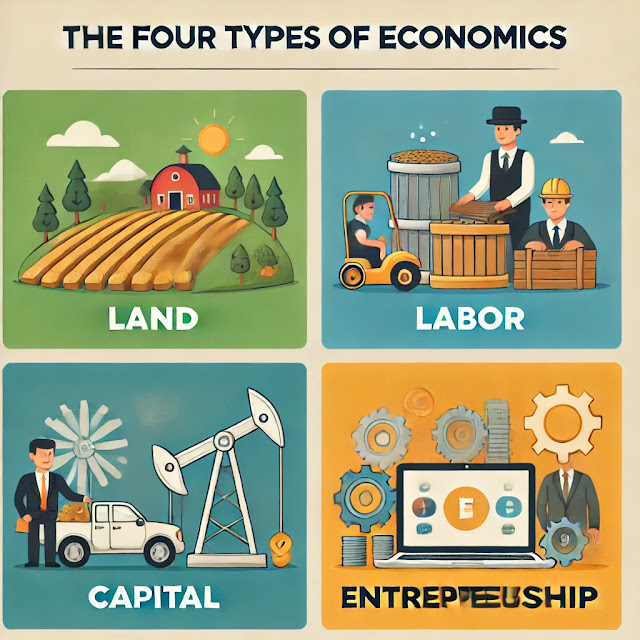Resources in Economics: An Essential Overview
In economics, resources refer to the inputs required for producing goods and services. Understanding these resources is crucial for comprehending how economies operate, as well as for recognizing the constraints that shape production and distribution. The resources available to an economy determine its potential output and the choices that individuals, businesses, and governments must make. In this post, we will explore the different types of resources and how they function in the economic system.
Types of Resources in Economics
Economists categorize resources into four primary types: land, labor, capital, and entrepreneurship. Each plays a vital role in the production process.
- Land: This includes all natural resources such as land, water, minerals, and forests. These are essential for the production of goods like crops, energy, and raw materials. For more on the significance of natural resources in the economy, you can refer to scarcity in economics.
- Labor: Labor refers to the human effort involved in production. It includes the skills, knowledge, and physical effort of workers who contribute to creating goods and services. To understand the impact of labor on economic growth, you may find our article on positive vs normative economics helpful, as it discusses the role of human input in the economy.
- Capital: Capital refers to man-made resources used in the production process, such as machinery, buildings, and tools. This differs from financial capital, which involves investments. Learn more about how capital works in the economy by reading our post on micro vs macro economics.
- Entrepreneurship: Entrepreneurs are individuals who organize the other resources—land, labor, and capital—to produce goods and services. They take risks and innovate to drive economic growth. A deep dive into how entrepreneurship impacts the economy can be found in our article on corporate governance in banks, as entrepreneurs often drive changes in various sectors, including finance.
The Role of Resources in Economic Production
The efficient use of resources determines the productivity of an economy. With limited resources available (a concept known as scarcity), choices must be made about how best to allocate them. This constraint leads to trade-offs, and the study of economics focuses on these decisions.
For example, resources such as labor and capital are combined in the production process to create goods like cars or smartphones. The way in which these resources are managed can influence the efficiency of production and, ultimately, the economic output of a society. To understand how scarcity affects choices in an economy, take a look at our post on the benefits of good governance in banks, which discusses resource management in financial systems.
Resource Management and Economic Systems
In different economic systems—capitalism, socialism, and mixed economies—resources are allocated in varying ways. Capitalism tends to rely on private ownership and market forces to allocate resources efficiently, while socialism often involves central planning by the government. The allocation of resources and the role of government in this process are essential topics for understanding economic policy. For a detailed examination, refer to our article on the central bank and commercial banks.
Conclusion
Resources in economics form the foundation of production and distribution in any economy. Understanding how they are categorized and managed is key to grasping the broader functioning of economic systems. By studying these resources and how they are utilized, we gain insight into how economies grow, make choices, and address challenges.
To explore more about how these resources impact broader economic structures, feel free to check out these related posts:




